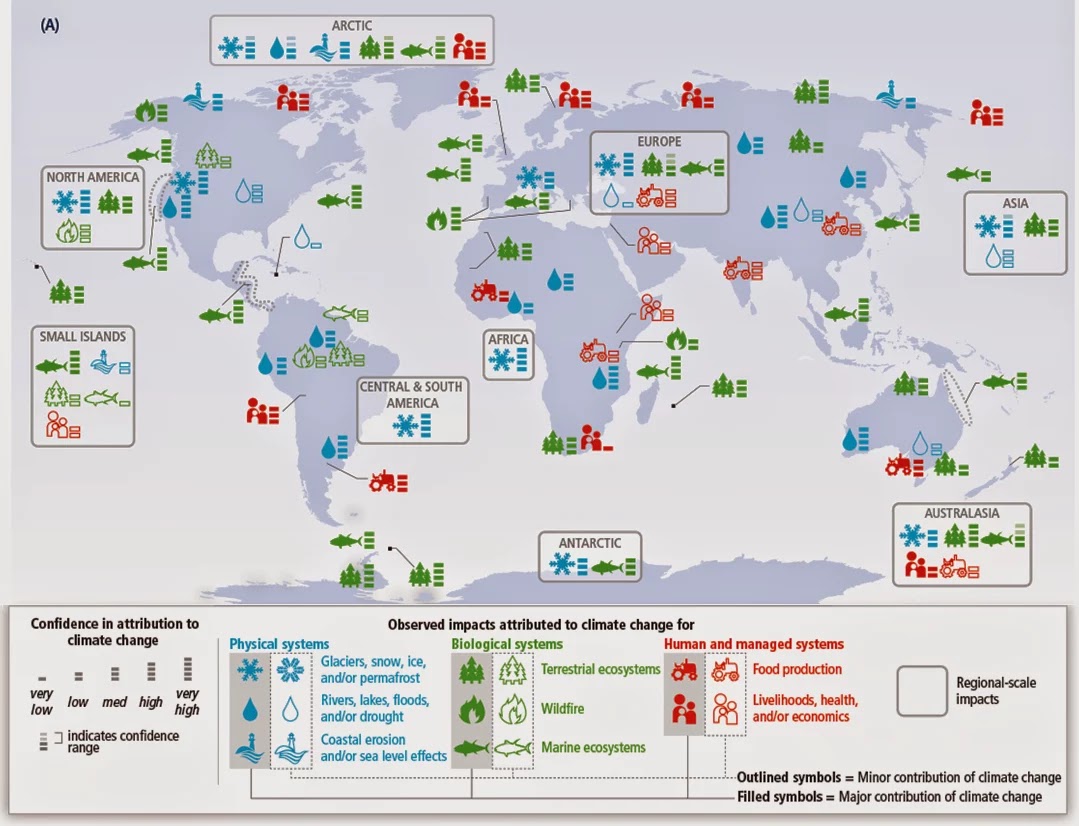Mapa del Cambio Climático
The U.N.
Intergovernmental Panel on Climate Change approved a new report over the
weekend on the risks of climate change — a crucial topic, since while no
serious commentators question the scientific basis of global warming, there are
some who hope that the consequences will be manageable. The report summarizes
what we know about those consequences. Scientists are very confident, for
example, that climate change will lead to disease, wildfire and, of course,
rising seas.
Yet the
report doesn’t only include forecasts. It also reviews how warmer temperatures
have affected us so far, as shown in the above map. On every continent, climate
change has brought about floods or droughts. It has also caused glaciers to
recede or otherwise reduced accumulations of snow and ice. In every ocean,
warmer and more acidic water has already damaged marine ecosystems. As fish
move northward and southward to find colder water, people who live in tropical
areas are likely to lose an important source of wealth and food. There is less
evidence showing how changing temperatures have affected agriculture so far,
although the report projects that yields of wheat, rice and corn will decline
as the planet warms. For now, people living in the Arctic bear the most severe
consequences of climate change, though those effects will become more
widespread with time.
Fuente: http://ipcc-wg2.gov/AR5/



Comentarios